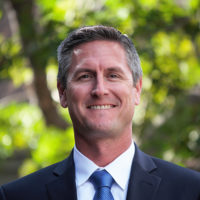How Do I Heal After A Breakup?

Dear CMR,
I am recently out of an eight-month relationship, and it didn't end very well. I find myself making myself busy just so that I don't have to think about it all. I know that isn't healthy. Can you give me some tips on how to take care of myself and slow down to process this change?
Signed,
Healing, Sad & Single
Dear Healing,
Thank you for your honesty and candor, for reaching out, and for pursuing healing in the midst of this painful process. Our tendency, so often, is to do exactly what you described: avoiding our hurt through busyness, distraction or escape. It takes courage to recognize that process and wisdom to know it isn't healthy. Well done. You are on the right track. Acknowledging your hurt, sadness, and/or loneliness, along with recognizing that what you're doing isn't working and having a desire to change is a wonderful step towards healing.
What follows next will likely be both challenging and uncomfortable. At the same time, it offers meaning, value and significance - now and moving forward. As you engage in the steps below, I invite you to do so at a pace that feels tolerable to you and in the order that feels most helpful and natural. In addition, I invite you to welcome others into this process with you; those who know you, whose hearts you trust, and who desire the same healing, growth, and goodness that you do. That said, here are some thoughts:
- Take some time to examine the thoughts, feelings and beliefs that have surfaced in response to your break-up. How has this experience impacted your view of yourself? Your ex? Relationships? Your future? Make note of anything that comes to mind. You're brainstorming here, not assigning worth, value or rightness. Rather, you're trying to tap into beliefs that you hold about yourself, others and the world.
- Once you have a sense of what's being stirred within you in the midst of this season, explore whether those thoughts, feelings and beliefs are familiar. Have you felt this way before? If so, when? Why? Do you notice any themes?
- At this point, you might be reminded of past hurts that you haven't healed from, or individuals or circumstances you may not have freedom from. Similarly, you may uncover attitudes and behaviors that worked in the past but may not be as healthy or necessary now. Consider releasing these hurts, beliefs and coping mechanisms. As you do so, you may choose to invite trusted others into this process, collaboratively exploring healthier frameworks for your relationship with yourself, others and the world around you.
- Rest, read, pray and commune. Play, exercise, laugh and adventure. These will help you engage your full self and avoid the tendency to withdraw, isolate and ruminate on your grief, loss and hurt. In addition, they'll also remind you that, although you are hurting, you are resilient; pain and purpose are not mutually exclusive.
- Practice. Some of the new thoughts, ideas and behaviors that you try to adopt may feel awkward or uncomfortable. Keep going. You're retraining your mind and your heart, a process that requires time, consistency, sacrifice and patience; and is well worth it.
- Trust. Trust the process. Trust that, even when you can't see it, you're growing. Getting healthier. Healing. There may be days when it feels as though you've taken a step back, or it's falling apart. Keep going. Press forward. Trust that you are stronger than you think. More resilient than you imagine.
"...[the pain will] also remind you that, though hurting, you are resilient; that pain and purpose are not mutually exclusive."
Remember, this is not done in isolation. Enlist the help of healthy, mature and trusted others. Invite God into this space. He knows hurt and loss and has experienced the breadth of emotions you're feeling. He's not afraid of where you are, what you're wrestling with or the questions you're asking.
If the hurt and the pain begins to feel unbearable, reach out further - to a pastor, mentor, therapist or medical professional. You were not intended to walk this road alone. There's no shame in asking for help; we're all in need of it. It's what makes us human; it's what reminds us that we are lovable; and it's what demonstrates the beauty of the body of Christ.



